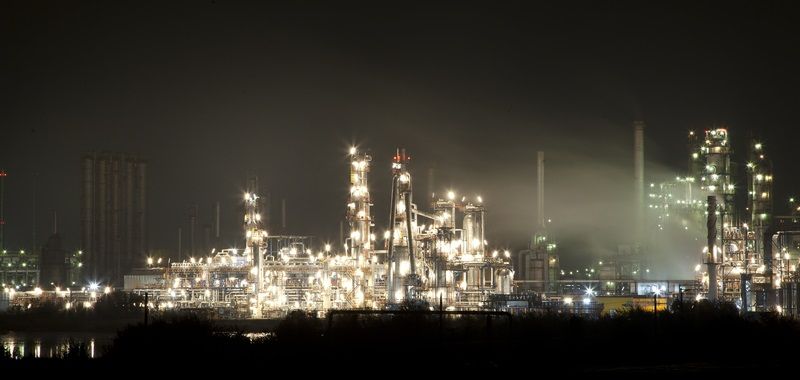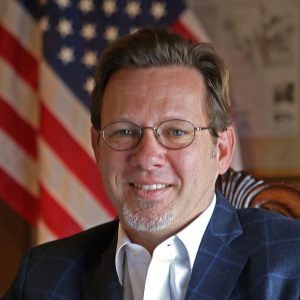From Icahn’s lips to Trump’s economic policy plan (at least the first version)
Washington Post
By Steven Mufson September 16
When billionaire investor Carl Icahn speaks, Donald J. Trump apparently listens.
The Trump economic blueprint initially issued Thursday took aim at an obscure program designed to promote the blending of ethanol with gasoline. The program sets minimum levels for renewable fuel use and creates tradable certificates that refiners must turn in to prove that the targets have been met.
“These requirements have turned out to be impossible to meet and are bankrupting many of the small and midsize refineries in this country,” the fact sheet on Trump’s economic plan said initially. “These regulations will give Big Oil an oligopoly by destroying the small to mid-size refineries.”
The program is hardly the stuff of populist campaign rhetoric. But Icahn, who has been a strong supporter and close adviser to Trump, happens to be chairman and majority owner of a pair of those small refineries, and things haven’t been going so well there.
Icahn’s two refineries are expected to pay more than $200 million to buy enough renewable fuel certificates to fulfill its obligations under the government’s volume-based rules, according to a J.P. Morgan note to investors in July. The purchase of those certificates has become the refineries’ biggest operating cost, J.P. Morgan said. Icahn’s stake in the refineries has lost about $1.7 billion in value, according to a calculation by The Post.
Icahn said in an interview Friday that he recently sent Trump a public letter he wrote about the issue. When Politico called the Trump campaign about a possible link on Thursday, the online fact sheet was revised to eliminate any mention of the renewable fuel standard.
The episode, like other comments Trump has made about energy policy, suggest that the GOP presidential candidate has a tendency to embrace policy positions and rhetoric from his business friends. In a North Dakota speech on energy earlier this year, Trump closely echoed anecdotes as well as ideas long sounded by shale oil tycoon Harold Hamm.
This time, Trump, who has indicated a desire to put Icahn in his cabinet, echoed Icahn, who has complained in the past about the specter of an oil “oligopoly.”
“I give him ideas to talk about here and there on the economy,” Icahn said. “Sure I have an agenda. George Washington had an agenda too,” he added citing the founding father’s land holdings. “But having an agenda doesn’t mean you’re not doing the right thing.”
Icahn’s refineries, one in Coffeyville, Kan. and one in Wynnewood, Okla., are part of a complex ownership structure under CVR Energy and related master limited partnerships that help minimize taxes. Amid a glut of refined products, the stock price of the refining company, which is 82 percent owned by Icahn, has plunged to less than half of what it was early this year.
That prompted Icahn to write an open letter to Environmental Protection Agency administrator Gina McCarthy on Aug. 9 urging her to overhaul the program, which he called “the quintessential example of a rigged market.” “has become ‘the mother of all short squeezes,’ ” where retailers don’t want to blend ethanol or choose to hoard their certificates until the last minute to get a better price.
Icahn said the system was threatening to bankrupt companies like his.
“Yeah I’m losing money from a year ago on it,” Icahn said, “but from where I bought it I’m making a lot of money. Nobody’s going to cry for me and I don’t expect them to. But it’s sad for the investors in the refining business in general.” He said that, counting dividends, he has made about $1.5 billion since buying the refineries.
The rumpus over the market for the certificates, known as renewable identification numbers or RINs, has stirred up controversy within the oil industry. Some refiners agree with Icahn while others have quietly learned to profit from the tradable RINs, and to love a regulatory program they have long criticized.
Here’s how it works: Legislation in 2005 and 2007 gave EPA the job of designing a program to reach rising thresholds of ethanol use. The idea was to promote efficiency as well as incentivize the use of ethanol both to cut greenhouse gas emissions and to bolster national security by reducing oil imports.
Currently the nation uses about 14 billion gallons of ethanol and about two billion of biodiesel. Each one of the gallons of ethanol produced in the United States gets a 38-digit RIN that can be detached and bought and sold, in some cases by investment banks or other trading companies. At the end of the day, the blenders generate RINs but refiners are required to turn them in to the EPA — in the system’s jargon, the refiners are the “point of obligation.”
With prices of RINs lurching from pennies to well over $1 a piece, the market is $10 billion to $15 billion in size.
The board of the American Fuel and Petrochemical Manufacturers,whose 400 members include both small and large refiners, voted by a narrow margin to file court papers demanding an adjustment. Instead of requiring refiners to submit to the government enough RINs to cover the refined gallons produced, EPA should shift that burden to the companies that actually mix the ethanol with the gasoline, the group said. Because ethanol corrodes pipelines, it cannot be mixed together with gasoline or diesel at refineries, which are therefore in a poor position to implement standards.
But the American Petroleum Institute, a long-time critic of the RIN program, now says there shouldn’t be any effort to alter it short of abolishing it, which is unlikely to happen. Industry sources, who asked for anonymity to maintain business relationships, say that over the past five years some of the country’s biggest integrated oil giants have purchased blending facilities, which generate RINs. That has helped them capture hundreds of millions of dollars in profits from the RIN market. Change could hurt them now.
In a conference call earlier this week, Frank Macchiarola, API’s director for refining and marketing, said the renewable fuel standard was “broken and needs to be repealed or significantly reformed.” But he opposed the AFPM position. “Efforts to tinker. . .at the margins will simply not work,” he said, adding that moving the obligation to buy certificates from refiners to blenders was “a mere distraction from the real issue at hand.”
“Where you stand on this issue depends on where you sit in the value chain,” Stephen H. Brown, vice president for federal government affairs at Tesoro. “Those refiners who took steps to mitigate their exposure to a volatile RINs market by establishing blending capacity do not feel the need to change the point of obligation. Those refiners who did not take those steps feel differently.”
Icahn puts in bluntly. “The EPA is doing for Big Oil what they could never do for themselves: Get rid of all the competitors in the refining business,” he said.
Major companies aren’t the only ones cashing in on the program. The long chain of producers, refiners, pipeline owners and blenders — as well as the lack of oversight — made the program a “ripe target” for corruption, according to a report by Doug Parker, a former EPA investigator who has taken part in inquiries into the Deepwater Horizon spill and Volkswagen’s deception over its cars’ fuel efficiency.
Despite the size of the RINs market, there is no equivalent of a commodities exchange or regulator.
“This is a total black box in many ways,” Parker, now president of consulting firm E&W Strategies, said in an interview about the RINs market. He said the “opaque” market was overseen by one or two capable-but-overstretched EPA officials, and that the agency has found $270 million of fraud in a handful of cases.
To make it trickier, EPA can alter the mandatory levels for ethanol and has often done that late in the year, throwing off companies’ calculations. The 2007 legislation set quotas for ethanol use, but the oil industry says that many cars cannot use fuel with more than 10 percent ethanol. EPA has lowered quota targets, acknowledging what is known in the business as the “blend wall,” but many refiners want it to be lower still.
Many refiners choose to export their products as a way to legally circumvent the RINs requirements.
So Icahn isn’t alone in his view of the RINs market. Valero, the largest refiner in the country, has weighed in on Icahn’s side, asking for an adjustment in the program.
“No refiner has invested more in renewable fuels than Valero. We are the third largest ethanol producer and the largest advanced biodiesel producer,” Rich Walsh, senior vice president and deputy general counsel, said in a statement Thursday. But he said adjusting the program was not part of an effort to discourage renewable fuels. He said, “It is a simple market structure change that levels the playing field and ends windfalls that hurt the program.”
But few companies have the ear of Trump or the gumption and resources of a corporate raider and activist investor like Icahn. Last year, Icahn formed a Super PAC with $150 million to target tax inversions. In August, his general counsel Jesse Lynn, told Reuters that he might start a new PAC focused on regulatory reform.
On Friday, Icahn said that “the architects of this [RINs] plan don’t understand the markets and the disastrous effects this plan is having. There are going to be terrible repercussions because I believe there will be a scandal as there was with mortgage-backed securities.”
Trading in those securities helped trigger the 2008 financial crash and Great Recession.
“The irrational regulation promulgated by the EPA is just one of a number of irrational rulings issued by regulated agencies,” Icahn said in his letter to McCarthy. “These regulations over the last eight years have caused a crisis of confidence on the part of companies.”




